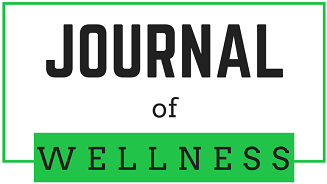
Abstract
Introduction: We propose a working model of compassion fatigue resilience by identifying compassion fatigue (CF) and compassion satisfaction correlates as potential targets for building resilience. Further, we explore focusing on pre-professionals as a method of primary prevention of CF.
Methods: The participants were 143 college students who completed self-report measures to assess current CF, self-care behaviors, self-care beliefs, self-esteem, frequency of helping behaviors, and exposure to others under extreme stress.
Results: Notably, hierarchical regression analyses (controlling for helping frequency and exposure to high stress individuals) suggested that self-care beliefs and self-care behaviors contributed to concurrent experiences of CF, through secondary traumatic stress (R2 =.3, F(5,135) = 11.69, p <.001) and burnout (R2 =.4, F(5,135) = 18.08, p <.001), respectively. Self-care behaviors were associated with compassion satisfaction in our regression model, which explained 36.1% of the variance in compassion satisfaction (R2 =.36, F(5,135) = 15.24, p <.001).
Conclusion: Remarkably, we found self-care beliefs as a significant predictor of concurrent CF. In line with prior research on professionals, we found compassion satisfaction to have an inverse relationship with burnout, and found self-care behaviors to predict concurrent compassion satisfaction. Based on our findings, a working model to build resilience to compassion fatigue is proposed (which centers on the importance of both self-care beliefs and self-care behaviors). Resilience promotion should focus on educating individuals about the risks of secondary traumatic stress and burnout prior to starting a career in the helping professions, before patterns of self-care beliefs and behaviors are firmly established.
DOI
10.55504/2578-9333.1100
Recommended Citation
Schwanz, Kerry A. and Paiva-Salisbury, Melissa
(2022)
"Before They Crash and Burn (Out): A Compassion Fatigue Resilience Model,"
Journal of Wellness: Vol. 3
:
Iss.
3
, Article 7.
DOI: https://doi.org/10.55504/2578-9333.1100
Available at:
https://ir.library.louisville.edu/jwellness/vol3/iss3/7
